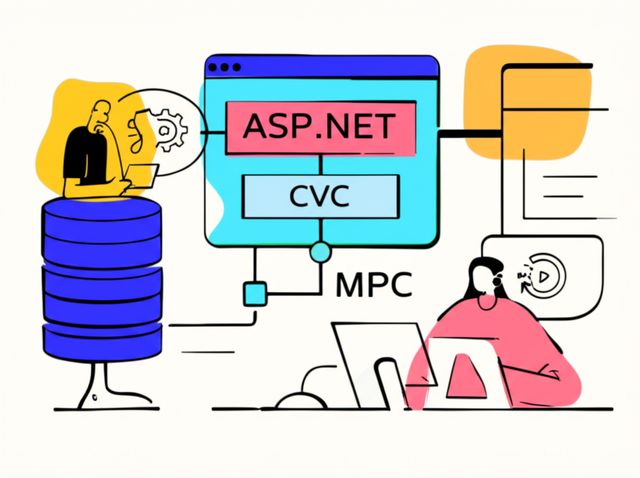ASP.NET Core MVC
ASP.NET Core MVC is a robust framework for building dynamic and interactive web applications using the Model-View-Controller (MVC) design pattern. The framework is based on the .NET Core platform and offers a comprehensive set of features and tools for developing modern, scalable, and maintainable web applications.
Why Learn ASP.NET Core MVC?
There are numerous compelling reasons to learn ASP.NET Core MVC:
High Productivity: ASP.NET Core MVC provides a streamlined development process, enabling developers to build and maintain web applications efficiently.
Testability and Maintainability: The framework emphasizes testability and maintainability, making it easier to write unit tests and ensure the stability of applications over time.
Cross-Platform Support: ASP.NET Core MVC applications can be deployed on multiple platforms, including Windows, Linux, and macOS, offering a wider reach for your applications.
Community Support: ASP.NET Core MVC has a vibrant community with extensive documentation, forums, and support resources, making it easy to learn from others and find solutions to any challenges you may encounter.
Career Opportunities: ASP.NET Core MVC is in high demand in the job market, with many companies seeking skilled developers proficient in the framework.
Career Paths
Proficiency in ASP.NET Core MVC can open doors to various career paths in software development, web development, and full-stack development. Some common career options include:
Web Developer: Responsible for designing, developing, and maintaining web applications using ASP.NET Core MVC and related technologies.
Full Stack Developer: Works on both the front-end and back-end of web applications, including ASP.NET Core MVC development, database management, and user interface design.
Software Engineer: Involved in the entire software development lifecycle, including requirement gathering, design, implementation, testing, and deployment. They may specialize in ASP.NET Core MVC development within this role.
Cloud Engineer: Focuses on deploying and managing ASP.NET Core MVC applications in cloud environments such as Azure or AWS.
Online Courses
Online courses provide a flexible and convenient way to learn ASP.NET Core MVC and enhance your skills. These courses typically cover the core concepts, best practices, and practical applications of the framework. By enrolling in an online course, you can benefit from:
Structured Learning: Online courses offer a structured curriculum that guides you through the essential aspects of ASP.NET Core MVC.
Expert Instructors: Courses are often taught by experienced professionals who provide valuable insights and share real-world examples.
Interactive Content: Online courses often include interactive content such as videos, quizzes, and assignments to reinforce your understanding.
Community Support: Some online courses offer access to discussion forums and Q&A sections, allowing you to connect with other learners and get support.
Is an Online Course Enough?
While online courses can provide a comprehensive introduction to ASP.NET Core MVC, they may not be sufficient for in-depth mastery of the framework. Hands-on practice and experience are crucial for developing proficiency in any programming technology. Consider supplementing online courses with:
Personal Projects: Build your own ASP.NET Core MVC applications to apply your knowledge and gain practical experience.
Open Source Contributions: Participate in open source projects related to ASP.NET Core MVC to contribute to the community and deepen your understanding.
Real-World Projects: Seek opportunities to work on real-world ASP.NET Core MVC projects, either through internships, freelance work, or within your own organization.
Certification: ASP.NET Core Certification can validate your skills and demonstrate your proficiency to potential employers.
By combining online courses with practical experience, you can develop a strong foundation in ASP.NET Core MVC and position yourself for success in the field of web development.


